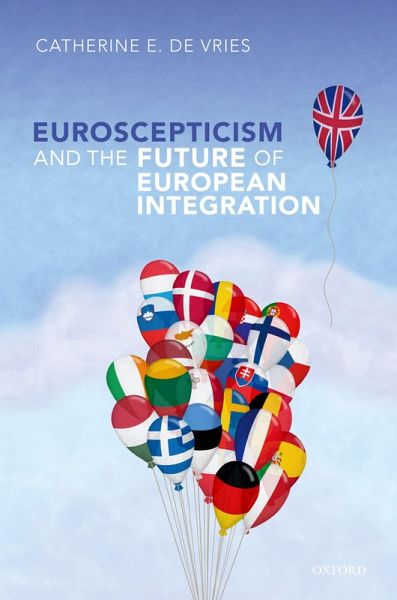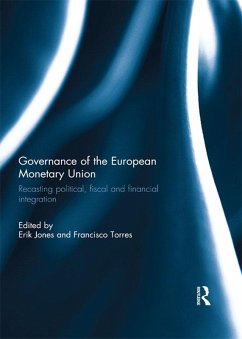
Euroscepticism and the Future of European Integration (eBook, PDF)
Versandkostenfrei!
Sofort per Download lieferbar
43,95 €
inkl. MwSt.
Weitere Ausgaben:

PAYBACK Punkte
22 °P sammeln!
The European Union (EU) is facing one of the rockiest periods in its existence. No time in its history has it looked so economically fragile, so unsecure about how to protect its borders, so divided over how to tackle the crisis of legitimacy facing its institutions, and so under assault of Eurosceptic parties. The unprecedented levels of integration in recent decades have led to increased public contestation, yet at the same the EU is more reliant on public support for its continued legitimacy than ever before. This book examines the role of public opinion in the European integration process....
The European Union (EU) is facing one of the rockiest periods in its existence. No time in its history has it looked so economically fragile, so unsecure about how to protect its borders, so divided over how to tackle the crisis of legitimacy facing its institutions, and so under assault of Eurosceptic parties. The unprecedented levels of integration in recent decades have led to increased public contestation, yet at the same the EU is more reliant on public support for its continued legitimacy than ever before. This book examines the role of public opinion in the European integration process. It develops a novel theory of public opinion that stresses the deep interconnectedness between people's views about European and national politics, and suggests that public opinion cannot simply be characterized as either Eurosceptic or not, but rather consists of different types. This is important because these types coincide with fundamentally different views about the way the EU should be reformed and which policy priorities should be pursued. These types also have very different consequences for behaviour in elections and referenda. Euroscepticism is such a diverse phenomenon because the Eurozone crisis has exacerbated the structural imbalances within the EU. As the economic and political fates of member states diverged, people's experiences with and evaluations of the EU and national political systems also grew further apart. The heterogeneity in public preferences that this book has uncovered makes a one-size-fits-all approach to addressing Euroscepticism unlikely to be successful.
Dieser Download kann aus rechtlichen Gründen nur mit Rechnungsadresse in A, B, BG, CY, CZ, D, DK, EW, E, FIN, F, GR, HR, H, IRL, I, LT, L, LR, M, NL, PL, P, R, S, SLO, SK ausgeliefert werden.













